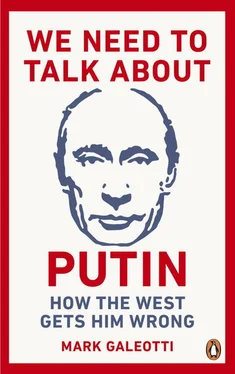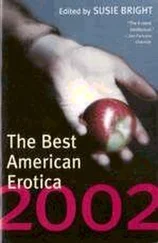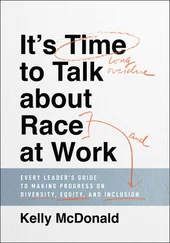It would be tempting to see this as proof that Putin is hiding money away for a rainy day or a lavish retirement. Once, during the precarious 1990s when he was trying to maximise a shrinking salary in a time of massive opportunity and risk, this may have been his main motivation. He has been linked to a variety of questionable deals in St Petersburg, such as the exports-for-food agreement that was meant to feed the city and yet which, according to city councillor Marina Salye, saw almost £100 million disappear, or else the £30 million construction budget that former police investigator Andrey Zykov said was spent on Spanish holiday villas for Putin and his friends. Neither case ever went to court, and Putin denies any wrongdoing. Even then, though, there seems to have been a collective and almost coincidental nature to much of the off-the-books enrichment that was going on. It wasn’t only Putin involved – he was just one of a bunch of friends who were making money, lots of money, thanks to their political connections and the business opportunities they opened up, and this all snowballed.
They built dachas, or country houses, on the eastern shore of Lake Komsomolskoye, north of St Petersburg. It appears an idyllic spot, but more striking than the vistas are the stratospheric careers of the members of the so-called Ozero (‘Lake’) Dacha Cooperative. In 2004 Yuri Kovalchuk became the chair of Bank Rossiya, in which role the US Treasury described him as Putin’s ‘personal banker’. In 2005, Vladimir Yakunin became head of Russian Railways, on a £10 million salary. His luxury mansion outside Moscow famously has not just an Olympic-sized swimming pool and a garage with space for 15 cars, but also a special room solely for fur coats. Nikolai Shamalov is a co-owner of Bank Rossiya. Sergei Fursenko became director general of one of the subsidiaries of the state gas corporation Gazprom in 2003, and later of the Gazprom-owned Zenit St Petersburg Football Club. The list continues, but the common denominator is that all these men, who are at least multi-millionaires if not billionaires, rose to high-power, high-paying positions under Putin.
The cooperative’s common bank account is held in Bank Rossiya, which is proof to some that it is Putin’s personal slush fund. However, the truth is more likely that it is a collective account into which many people can put money and that Putin, should he want to, is simply one of those who can dip into it. It is telling that the best parallel seems to be the obshchak , the kitty Russian organised crime gangs used to keep, to fund new operations, to look after members who got sent to prison, and to otherwise to keep the group happy and busy. In the early 1990s, when Putin was horse-trading with St Petersburg’s gangsters on Mayor Sobchak’s behalf, he may have learned a thing or two. He was certainly operating in an environment where corruption was the norm rather than the exception. I once asked a policeman what would have happened had he not taken bribes, and he explained that it wasn’t just that his family would have suffered – no one could live on a policeman’s salary in the 1990s – but also that it would have caused trouble for him with his colleagues. As he said, if you ‘don’t take bribes and you stand out from the rest, you become a problem for them. It’s safer just to do like everyone else.’ Nothing suggests that Putin had any intention of standing out from the rest in this respect.
Of course, the shopkeeper being shaken down by a fire inspector or the driver pulled over by a policeman for speeding have to reach for their wallets, but the real problem for Russia, rather than this individual corruption, is the industrial-scale profiteering at the top of the system that sucks the blood from the country’s veins and the marrow from its bones. According to the INDEM Foundation, one of the few remaining independent think tanks in Russia, corruption devours up to a third of its GDP. To put it another way, whatever the cost of Western sanctions since 2014, Russia’s own political and business elite have cost the country up to six times as much.
The way this corruption works is through favours, access, lucrative contracts and the authorities turning a blind eye to flat-out embezzlement. The Kremlin doesn’t pay people – it simply grants them opportunities that they can milk. In return, rather than handing over suitcases of cash, they invest in projects, donate to charities, grant stakes in businesses and look after friends. This doesn’t only apply to regular businesspeople; officials are also encouraged to take advantage of their positions, which back in tsarist times was called kormleniye , or ‘feeding’, both to ensure their loyalty and also to guarantee that if the government has an excuse if it ever wants to get rid of them. If you’re the person who gets to decide in whose closet to rummage, it is useful if everyone’s is hiding a skeleton.
The same exchange of loyalty for opportunities to get rich even applies to the underworld. Back when he was deputy mayor in St Petersburg, Putin’s job was to act as a ‘liaison’ – essentially, to cut deals with whomever he had to, to keep the city running and the local bigwigs happy. This included powerful crime gangs, especially the Tambovskaya group, an organisation so formidable that its leader, Vladimir Kumarin, became known as the ‘night governor’ – the implication was that by day, the mayor’s office was in charge, but at night, St Petersburg was Tambovskaya’s. He managed to stay ahead of the law until 2007, when he was arrested and sentenced on a range of charges – his continued high-profile status had become a little too embarrassing for Putin. Companies run by the Tambovskaya gang were granted a range of contracts and perks in return for their cooperation, and this same model was applied throughout Russia when Putin became president, in effect offering organised crime a degree of freedom so long as they did not directly challenge the state. In politics, business and crime, three worlds that admittedly do overlap to a depressing degree in Russia, Putin offered wealth in exchange for loyalty. Just as the political entrepreneurs seek to predict and please him with geopolitical mischief abroad, the corrupt entrepreneurs in business shower the boss with gifts, in the hope of winning and keeping his favour.
When Putin wanted to build a lavish palace for himself at Cape Idokopas in the over-the-top, blinged-out style so beloved of the Russian new rich, complete with a private theatre and three helicopter pads, he didn’t pay for it himself. He didn’t even do so out of the state budget. Instead, he demanded that a number of the wealthiest businessmen make ‘voluntary donations’ to fund health care improvements. It was a request you couldn’t refuse. According to a whistle-blower who was involved in the scheme, about a third of the millions collected was diverted into offshore slush funds, with much being used to build the palace. The government denies that it is even an official residence, but this claim became harder to sustain once it was clear that it is garrisoned by Kremlin Guards from the Federal Protection Service, and maintained by the Presidential Property Management Directorate.
After all, those people making fortunes of their own know that they are rich only while they have political power and Putin’s goodwill, which also keeps them suitably anxious and vulnerable to the whims of the Kremlin. The Italian Renaissance politician and philosopher Niccolò Machiavelli once said that while ‘gold by itself will not get you good soldiers, good soldiers will always get you gold’. The corollary for Putin’s Russia is that although money will not necessarily get you power, power will always get you money. Remember that ‘Putin doesn’t go looking for money – money goes looking for him.’ The irony is that these days, when Putin has least need for money, people are most eager to give it to him. The ‘Panama Papers’ revelations reflect that he accumulates money not so much against his will as much as without his working at it and perhaps even – to an extent – without him knowing the details.
Читать дальше












